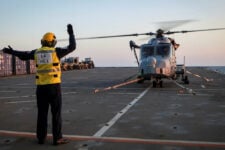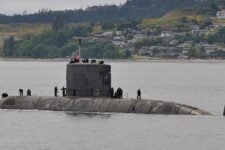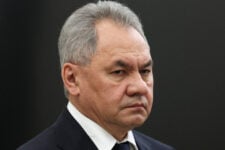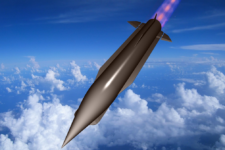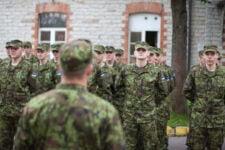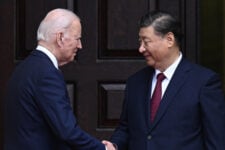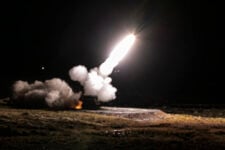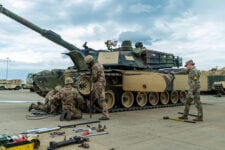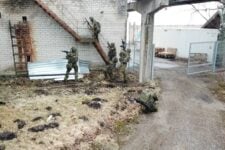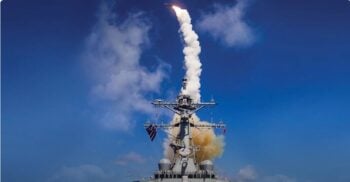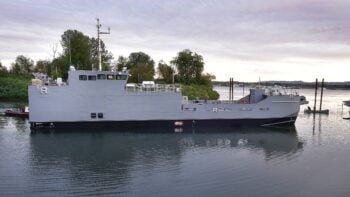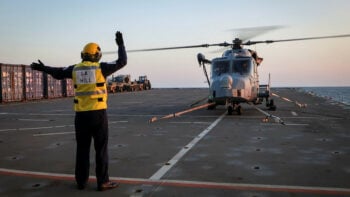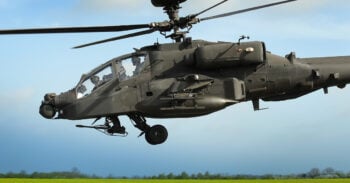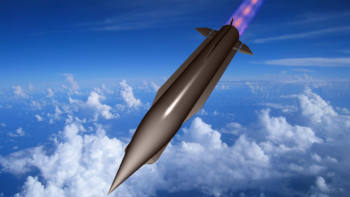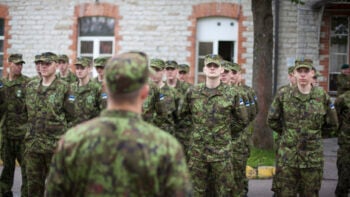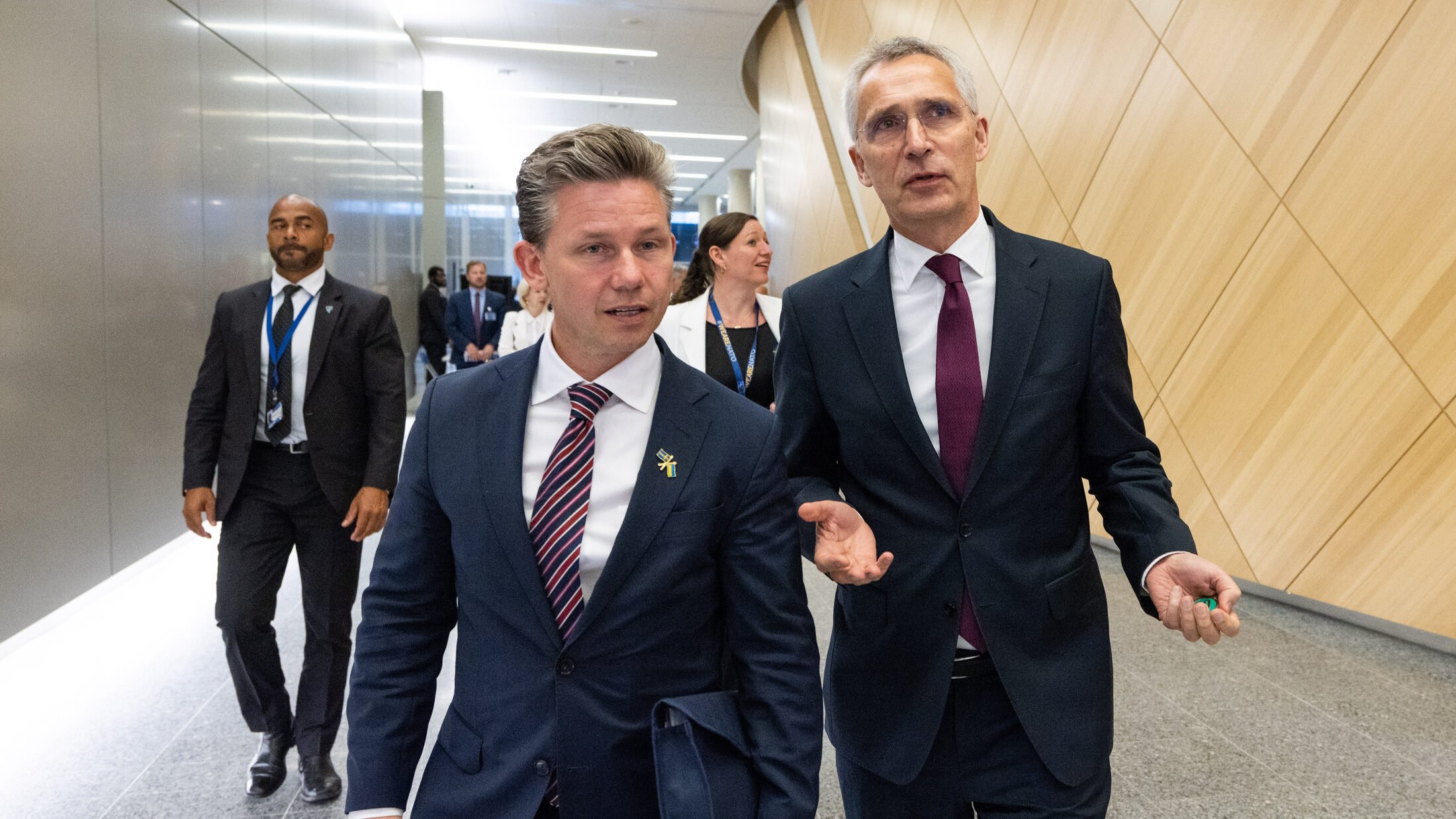
Pål Jonson, Sweden’s minister of defence meets with NATO Secretary General Jens Stoltenberg at the alliance’s defense ministers summit in Brussels, Belgium (NATO).
STOCKHOLM — Pål Jonson, Sweden’s minister for defence, said his country has no plans to send personnel to Ukraine, but left open considering such options if it were proposed by the Scandinavian country’s new allies in NATO.
“As far as I understand, there was no unified position among” the countries that met at a Paris summit earlier this year, Jonson told a group of reporters and think tank analysts here at Saab’s office on Monday. (Breaking Defense, like other outlets, accepted travel accommodations from Saab for this trip.) “There’s no concrete proposal for it here and now. If it comes up, a concrete proposal, we can take it into review,” added Jonson.
In February, French President Emmanuel Macron became the first European leader to begin publicly voicing support for the idea of his nation and other NATO allies sending personnel into Ukraine to help defeat Russia’s invasion. His impromptu summit was attended by 20 European leaders as well as at least one US State Department official, Reuters reported.
The French president’s remarks naturally stirred other countries to begin either publicly or privately mulling the idea.
The White House quickly ruled out the possibility of sending American troops to Ukraine, adding that such a choice is a “sovereign decision” for every NATO country. Estonian officials told Breaking Defense last week that the Baltic nation had at least internally discussed sending troops, though no decision is imminent. and the prime minister of Lithuania, Ingrida Šimonytė, told the Financial Times she was open to sending Lithuanian troops into Ukraine to train Kyiv’s forces there.
Speaking in Washington on Monday, Canadian Minister of Defence Bill Blair said that while his country is open to “evolving” its stance, right now there are no plans for sending major Canadian forces into Ukraine.
“Just to make it very clear, the conditions, in my opinion, are not yet appropriate to deploy Canadian troops in any capacity into Ukraine, as it pertains to their combat zone,” Blair told reporters at a Defense Writers Group event. “We are present in Ukraine and providing, for example, assistance to our consulate and force protection for the personnel that we have provided there. But I think we need to be very cautious about doing anything that would implicate our militaries in the combat zone.”
INTERVIEW: Sweden’s top officer on the ‘mental transition’ of joining NATO and Russian concerns
Rear Adm. Jens Nykvist, a Royal Swedish Navy officer and deputy chief of the defence staff, told reporters here that while NATO does not consider Sweden a front line country relative to Russia, it is still close enough that any adverse Russian action would almost certainly have consequences for the Scandinavian country.
“You have the front line states and Sweden now is not in NATO view in that way a front line. Finland is a front line, so we are part of the rear area,” he said. “I think it’s important though that yes, it might be part of the rear area, but it’s really — it’s still too close not to be affected. I’m pretty sure it will be affected.”
When asked about activities in Baltic shipping since Russia’s invasion, Nykvist told Breaking Defense that the normal flow of goods has remained steady, but there has been an increase both in activities from NATO allies in the region as well as Russian ships which, he noted, use it as a pathway to the Mediterranean. The admiral estimated around 4,000 vessels are transiting the Baltics at any given moment.
Unlike the Atlantic and Pacific Oceans, the Baltic Sea is relatively shallow, particularly brackish and its smaller size means that military installations ashore are capable of tracking and affecting ships at sea and vice versa. Those qualities are important to countries like Sweden who are keenly aware that Russian submarines are “always” present in the Baltics, Nykvist noted.
For its part, Sweden has followed a trend of European nations growing their defense budgets in response to Russian aggression in Ukraine. Key lawmakers recently delivered to Jonson a review that ultimately recommends the country boosts its defense spending from 2.2 to 2.6 percent of GDP by 2028. The proposal by Swedish lawmakers followed an equally ambitious plan announced by Norway in early April.
Jonson called the proposed increase a “substantial investment” and “much needed.”
“We have a strong defense industrial base for being a small country,” he said. “We like to think that we punch above our weight. There is no other country of course of 10 million [people] that have the capability to design fighter aircraft, submarines, surface combatants [and] advanced artillery systems… So, that’s an asset that we take into the alliance.”
TAI exec claims 20 Turkish KAAN fighters to be delivered in 2028
Temel Kotil, TAI’s general manager, claimed that the domestically-produced Turkish jet will outperform the F-35 Joint Strike Fighter.

